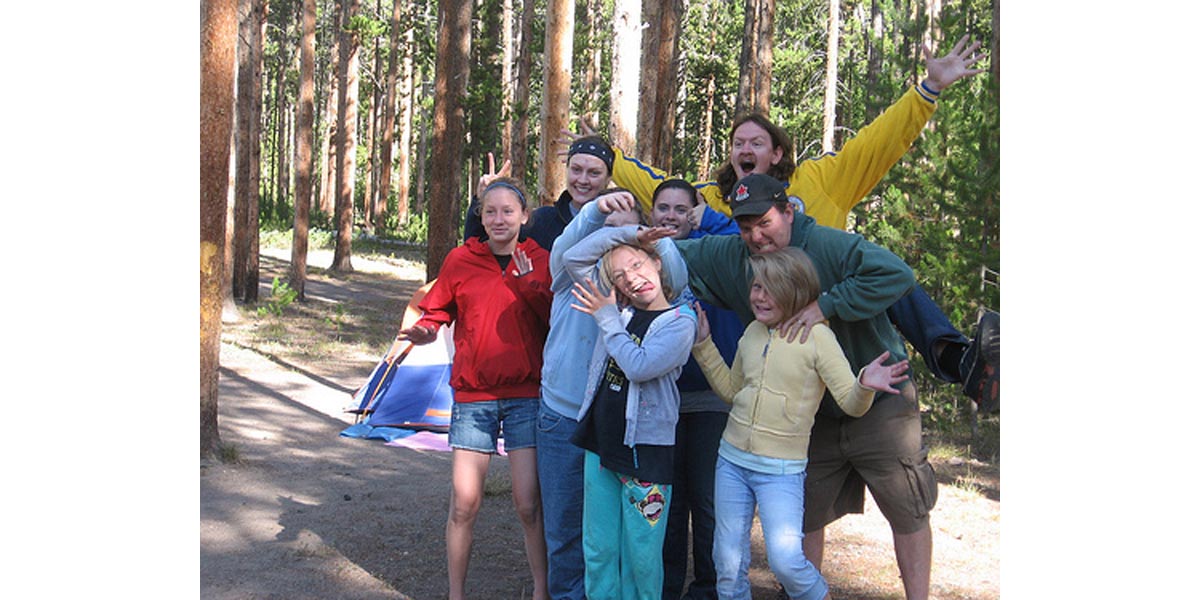1. Keep foods separated, one type of food in a plastic bag or plastic container, not mixed with others

2. When it comes to coolers, think small
Use one cooler for drinks, another cooler for produce, and a third for meat. They will be easier to carry, and there will be much less risk of cross-contamination between meat, which you cook, and produce, which can ruin any camping trip in almost no time.3. Carry a bar of soap for mosquito bites
There is a long list of home remedies that actually work for taking the itch out of mosquito bites. Some people dab the bite with Benadryl cream, Calamine lotion, Bag Balm, Udder Balm, Gold Bond Medicated Cream, After Bite, or even Vick's VapoRub, usually reserved for treating chest colds, or Preparation H, usually reserved for hemorrhoids.
Some people take an aromatherapy approach and carry little vials of lavender oil, witch hazel, sandalwood oil, cedar wood oil, or tea tree cream, the latter typically reserved for treating acne. And there are campers who use meat tenderizer, baking soda and water, crushed Aspirin and water, lemon juice, lemon slices, honey, and roll-on underarm deodorant to treat mosquito bites; we can hope they do not use them all at the same time.
If you just don't have room for one more thing in your backpack, let your bar of soap double as your mosquito bite treatment. It will stop the spread of the itch, and anything tingly or perfume-y in the soap will act as a mild counter-irritant, much like Calamine. And if you are treating mosquito bites on kids, dabbing the bite with soap gives you a leg up on getting them washed before it's time to go to sleep.
4. Don't feed the bears. Especially not your family or yourself
Bears typically don't wander into human habitats unless they are fed. If you are wandering into bear habitat, which is most of Canada and a very large part of the United States, don't leave food where bears can be attracted to it. And for the sake of both your own group and those following it, never, ever feed the bears. If you do spot a bear, calling the first responders would not be an overreaction on your part.5. If you, a family member, or (more likely) a pet are bitten by a tick, remove the tick cautiously
The nasty, untreatable diseases spread by ticks, including Lyme disease, may not have a chance to spread into your body it you can remove any tick that has bitten you without breaking off its mouth parts into your skin, or squeezing its guts and saliva into the wound. Don't use a hot matchstick to remove a tick. Don't remove it with your fingers. Use straight-edged tweezers to remove the tick off the skin without twisting or squeezing.6. Stay hydrated
Don't be embarrassed by the possibility of needing to urinate in the woods. Drink water before you get thirsty to avoid dehydration. Children may need as much as 250 ml (about a cup) of fluid every hour, and teens and adults sometimes as much as a liter in severe summer heat. Dehydration is not merely uncomfortable. It can become life-threatening. So stay hydrated.7. Use sunscreen
Despite the now well-known scares about potentially toxic and otherwise harmful sunscreen ingredients, a nasty sunburn is more likely to do harm to long-term health, especially long-term health of children, than the chemical ingredients of sun screens. Plan ahead and buy sunscreens with zinc or titanium oxide, natural ingredients that do not have any potential carcinogenic effects on the skin, to help prevent skin cancer.- Dr. Alan Greene, personal communication, 29 June 2011.
- Photo courtesy of Big Sky Red on Flickr: www.flickr.com/photos/bigskyred/4141655006/

